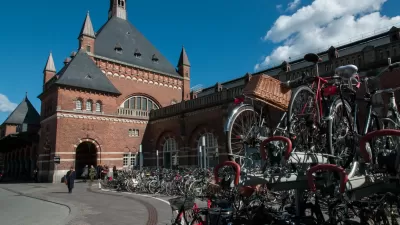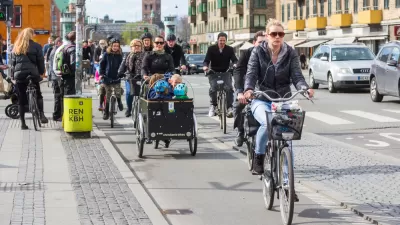For the famous Danish community of squatters, an offer from the Government to purchase their land proved too good to refuse.
According to Sally McGrane, writing in the New York Times, after years of uncertainty under a conservative-led government in which the 40-year experiment in communal living was threatened with expulsion and a Supreme Court ruling that said the squatters had no legal right to remain on the land, the residents made a pragmatic decision to buy the property - or, as many would have it, to "buy it free."
"The Danish state made it easy, too. Not only did officials offer to sell the land for about $14.5 million, a fraction of what it would be worth if sold commercially, but they also made several provisions to accommodate the Christianites' way of life."
However some residents, present and former, such as Ida Klemann "have a feeling of sorrow that the state forced us to buy it. I thought it was wonderful the Danish state was generous enough to allow this wild little thing to go on living inside itself."
FULL STORY: Free-Spirited Enclave’s Reluctant Landowners Fear Capitalism’s Harness

Maui's Vacation Rental Debate Turns Ugly
Verbal attacks, misinformation campaigns and fistfights plague a high-stakes debate to convert thousands of vacation rentals into long-term housing.

Planetizen Federal Action Tracker
A weekly monitor of how Trump’s orders and actions are impacting planners and planning in America.

In Urban Planning, AI Prompting Could be the New Design Thinking
Creativity has long been key to great urban design. What if we see AI as our new creative partner?

King County Supportive Housing Program Offers Hope for Unhoused Residents
The county is taking a ‘Housing First’ approach that prioritizes getting people into housing, then offering wraparound supportive services.

Researchers Use AI to Get Clearer Picture of US Housing
Analysts are using artificial intelligence to supercharge their research by allowing them to comb through data faster. Though these AI tools can be error prone, they save time and housing researchers are optimistic about the future.

Making Shared Micromobility More Inclusive
Cities and shared mobility system operators can do more to include people with disabilities in planning and operations, per a new report.
Urban Design for Planners 1: Software Tools
This six-course series explores essential urban design concepts using open source software and equips planners with the tools they need to participate fully in the urban design process.
Planning for Universal Design
Learn the tools for implementing Universal Design in planning regulations.
planning NEXT
Appalachian Highlands Housing Partners
Mpact (founded as Rail~Volution)
City of Camden Redevelopment Agency
City of Astoria
City of Portland
City of Laramie





























